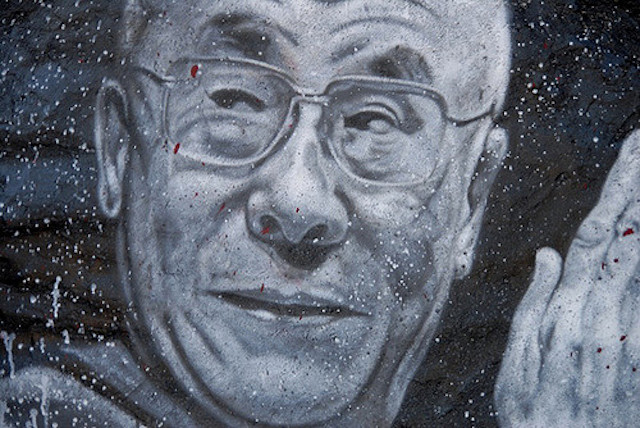
The Dalai Lama has always been my greatest example of humility.
The truth is that learning about him is what introduced me to the word “humility.” I first knew of the Dalai Lama as the spiritual leader of Tibet and a holder of the Nobel Peace Prize. As I delved more into Buddhism and traveled in Dharamshala, I could discern that His Holiness had risen far above labels such as “spiritual leader” and “Nobel Prize holder.”
I’ve always wondered what would become of a person who is as lovable and as popular as the Dalai Lama. We live in a world that encourages competition and advertises the importance of being number one. It appears to me that popularity and fame have become a goal that we must achieve to attain happiness.
The more we grow up, the more we lose our modest nature. We start identifying ourselves with ideologies, principles, and goals that strengthen our pride. Our attachment to our own identities makes us feel as if we’re better than others—that we are separate individuals who have nothing in common with each other. Moreover, we weigh ourselves—and others—by how much we have accomplished, gained, or learned.
I look at the Dalai Lama and marvel at his popularity, yet he doesn’t seem to measure himself based on his worldly accomplishments. Every time I hear him talk, his humility astonishes me. Although we might think he is spiritually ahead of us, he thinks that he is exactly like us. As he says in the video below, he considers himself to just be one of the seven billion human beings on earth.
Frankly, it’s not difficult to discern this. In one of his talks, he explains how arduous it is to be on a flight and hold in a fart. He can’t just “let it out,” so he looks around—right and left—then he lifts one of his butt cheeks and farts.
I burst into laughter upon watching this. However, it doesn’t surprise me to see the Dalai Lama being so spontaneous, because that’s exactly what makes him special. For us, it’s the Dalai Lama—the spiritual leader of Tibet—who’s explaining how he farts on a plane. For him, he’s just a human being who’s explaining a normal reaction happening in the body.
At the end of the talk, the interviewer tells him that we’re on the same path, striving for the same goal. He interrupts her and says, “And also the same gas experience.”
The Dalai Lama describes himself as a simple Buddhist monk, and I couldn’t agree more. He’s taught me how to tap into my innate traits. As much as I learn crucial spiritual lessons from him, I also learn how to be utterly myself, without regard to my own position in society. When we are ourselves, we return to our childlike traits, which are essential to our happiness.
When we lose our humility, we lose our sense of compassion, forgiveness, kindness, and mindfulness. And when we lose those attributes, we lose the ability to build successful relationships built on good will.
Humility is just like kindness—it’s not a destination; it’s a journey. We need to practice it and cultivate it on a daily basis, because it’s the foundation of all our other positive traits. Without humility, we can’t be open to new ideas, forgive, be spontaneous, confess when we’re wrong, accept our flaws (and other people’s), or be hopeful.
This is why the Dalai Lama is a compassionate, kind human being. It is because he has developed so much humility.
Let’s be more like him.
~
Author: Elyane Youssef

No comments:
Post a Comment